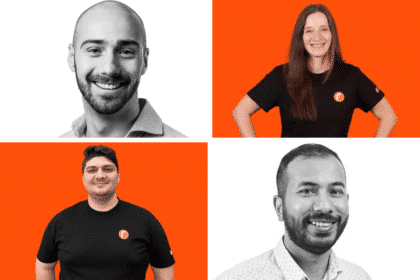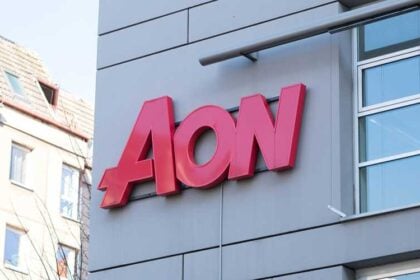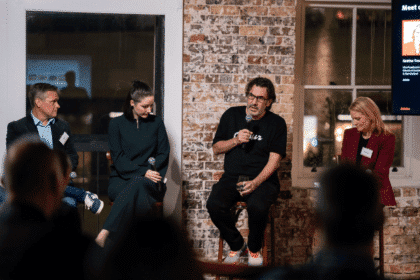There are few industries that have been hit harder by the coronavirus pandemic than events, with agencies forced to pivot in surprising and innovative directions to survive.
Nigel Ruffell is the director of The Company We Keep, a live brand experience agency that hosts events at 15,000 pax, and opened its doors in 2018.
With 25 years in the events industry, first in theatre and broadcast, then moving into the corporate sphere, Ruffell reveals what he’s learnt from 2020, and how his company survived—and succeeded.
He also touches on what a virtual future of events could look like, and when he expects large-scale live events to come back. There’s all that and more in this B&T profile.
Nigel, where did the idea to start an events company come from, and why did you decide to act on it?
I have worked in many companies throughout my career and I wanted something different. I wanted to start an agency that worked with people, didn’t white label, didn’t claim to be the next messiah or this omnipotent agency that had all the answers, I wanted to create one that surrounded themselves with the best in the field, worked shoulder to shoulder to deliver extraordinary things, was a conduit to bring together the right people for the next solution.
We have a mantra that even the ordinary can be extraordinary if you do it with the right people. I wanted an environment where it wasn’t about the money, we have done projects for free or even at a loss because we loved the projects, the work we created and more importantly the experiences we gave people.
I also want to see everyone in the agency succeed, not just in their career but in life, I want them to have a work life balance, to be supported and truly love what they do.
I’ve witnessed lots of agencies burn through incredible talent by not seeing or maybe not caring about the long-term goals of those people.

How did you and your company endure 2020? Do you believe you will continue to endure?
Alongside the majority of the world, I think it was probably the most unexpected occurrence I have experienced in my life. I spent the first month in complete disbelief, thinking it would all blow over in a month or two but the next few realising that the industry would never be the same again.
We switched very quickly into the virtual world, creating Salesforce World Tour Reimagined in 10 days with over 147 sessions, live streamed to 85,000 people on their platform and 1.5 million across all channels including social. Post this, we looked at what could be achieved and moved heavily in the virtual, platform and broadcast field.
Investing in new technologies and talent to support the team and grow this area of the business. We treat each experience as a TV series or film not a live show online or a zoom call, no one tunes in for that anymore, we do it enough everyday. We look to engage the audience through multiple devices, interactions and real time inclusions, so they are not passive observers, they are still part of the experience.
Will the events industry recover in 2021? What will the industry require to aid its recovery?
Live events will come back, everyone is chomping at the bit, you’ll never replace the face-to-face but it will never be the same again and multimedia approaches are here to stay, and rightly so. Before the Christmas COVID scare, we had live events booked for 300 pax plus but they have all gone back to virtual (although with the hybrid possibility always ready to be added).
It will take some clear space from case numbers and also one brave company to go first, especially at the large scale, but I think we will see it toward the later part of the year. We need to embrace and continue to build new ways of connecting so when live events do come back the experiences with these new added elements will be like never before.
What challenges need to be solved to get events back on their feet?
To go back to the 15,000 in person ones it’s going to take the virus to be completely under control. To continue to develop and engage audiences in the virtual space, constant evolution and introduction of new tech like XR, AR and interactive platforms to immerse the audience wherever they are.
One of the benefits of the virtual world is you can beam in speakers and talent from all over the globe. We had Crowded House perform and they were split between LA and Dublin at the time.
How can other companies learn from your example?
I am not sure we have anything to teach, I just feel if we as an industry are really open, willing to work together and to share, then who knows what heights collective collaborative projects could reach.
I am looking forward to seeing what our company can become, seeing what incredible things will be achieved this year and how much they will grow. I am looking forward to a return to large scale large events, but I am also just excited to see in the virtual world what we can create this year—if we never settle, what will the future bring?
Featured image source: Salesforce © Salty Dingo 2020








